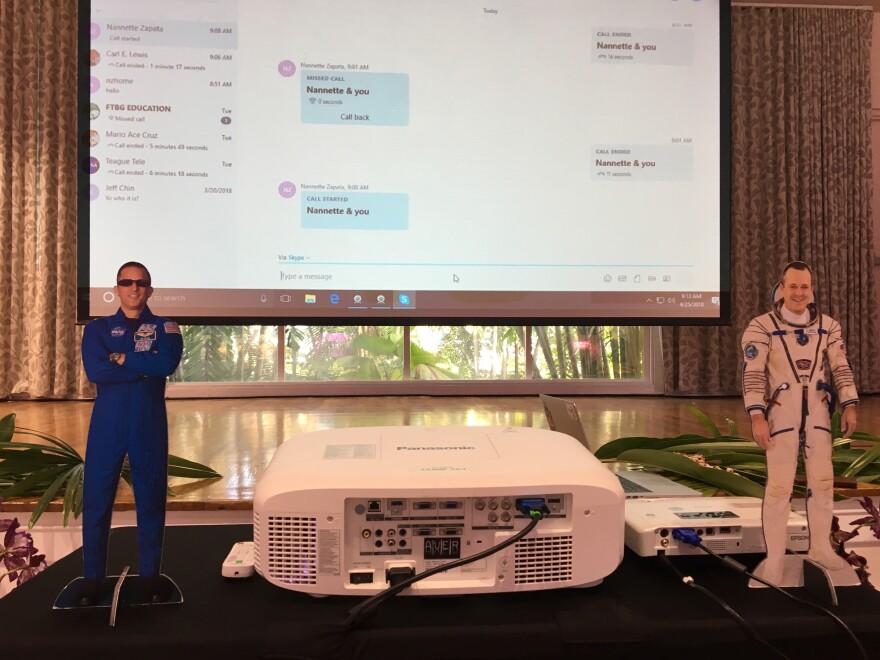As part of a project to find the best edible plants to grow in space, NASA has turned to South Florida students.
High school and middle schoolers participating in the Fairchild Challenge educational competition are helping select food plants appropriate for growing aboard a spacecraft by conducting plant experiments, specially designed through the Growing Beyond Earth partnership between the space agency and the Fairchild Tropical Botanical Garden.
On Wednesday morning, about 250 of these aspiring scientists gathered at the Garden House of the Fairchild Tropical Botanical Garden to talk in real time, through a downlink, with astronauts Ricky Arnold and Drew Feustel aboard the International Space Station (ISS).

Alejandro Perez, an 11th grader at the magnet school BioTECH @ Richmond Heights, said cooperating with NASA has inspired a deeper love for botany.
“Now that I have been working with them, it makes me want to consider majoring in botany in college, so that I can maybe in the future work up in the ISS growing the plants for them," he said. "Maybe planting plants in Mars.”
The garden's Fairchild Challenge seeks to increase student exposure to botany. This fits well into NASA's research as primary sources of research data, according to Fairchild Director Carl Lewis.
"The questions that NASA is trying to address -- which are the right plants, what is the right kind of growth environment, what is the right kind of lighting? -- those are big questions and are so broad that it's perfect for this kind of crowd-sourced research where a lot of different creative minds are working on these problems," said Lewis. "It's very interesting for the students to look at this microcosm, to have a small, mini-version of planet Earth in their classroom, to see how to produce food in a limited-resource environment.

From 254 miles above the earth, Arnold said there is ample opportunity for anyone to get involved with work aboard the ISS.
“Our experiments are actually designed by scientists on the ground. We’re up here doing the work for them," he said. "Scientists include professional scientists, university students and also students in middle and high school.”
Some of the plants selected to grow on the ISS's veggie module include red romaine lettuce, purple magic pak choi, red robin dwarf tomatoes, dwarf great sugar peas, sweet chocolate peppers and emperor Chinese kale. Information on trial results can be found here.









